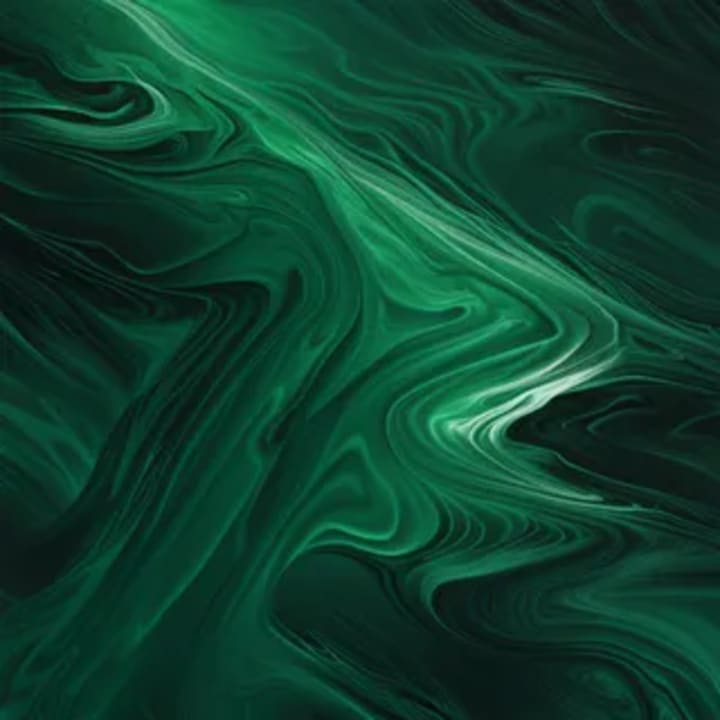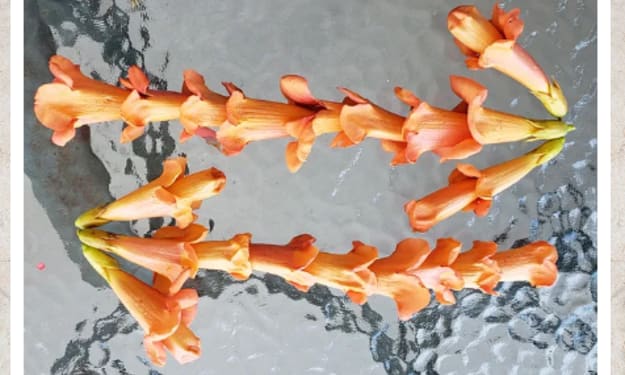Omen! When the Black sea changes its color!
Signs and wonders during the summer solstice 🌻🌻

Written as a reminder of wars and the many consequences and hopes for peace everywhere.
On the longest day of the year, a town revives an ancient solstice ritual and discovers its unexpected power.

Ivan Kupala Night in the Ukraine is celebrated during the summer solstice. It falls on July 6-7, coinciding with the longest day of the year. During this extraordinary ancient holiday, Ukrainians engage in various rituals, including dancing around the Kupala tree, jumping over fires, weaving wreaths, and enjoying a ceremonial Ukrainian dinner with varenyky, eggs, and liquor. The June solstice (summer solstice) in Ukraine occurs at 11:50 pm on June 20, 2024. So, while the official Ivan Kupala Night is in July, the actual solstice occurs a few days earlier in June. 🌞🌿🌻🌻🌻

Ivan Kupala night is a holiday with romantic connotations, with people placing floral wreaths on the water and gathering around bonfires.
It is said that many mysteries may happen that night.
In May, the color of the Black Sea had begun to change, becoming more dramatic in scale every day, scientists believe this was due to the massive reproduction of phytoplankton. Earlier, scientists had discovered a sudden increase in chlorophyll in the ocean.
The Black Sea is bordered by Ukraine to the north, Russia to the northeast, Georgia to the east, Turkey to the south and Bulgaria and Romania to the west.
Now, on the day of the summer solstice, as the people danced and celebrated a year of turmoil, something eerie was happening. In the images from space, the Black Sea became no longer dark blue, but an ominous shade of emerald green.

Now, somehow the Black Sea has changed color significantly. Until recently, what had been seen as a dark blue color on space images, has now become emerald-green. The largest color changes occurring off the coast of Bulgaria and Romania (Danube Delta).
The solstice changes had ushered in a new era, explaining what happened to the water in the Black Sea and what it threatens to do.
Changes that had already occurred off the coasts of Bulgaria and Romania; in June, the same color change was seen in front of the Ukrainian coastline. Photos of the changes were captured by the Aqua satellite.
According to experts, the phytoplankton invasion could lead to a sharp drop in oxygen levels in the Black Sea, and thus to the mass extinction of its marine life.
According to NASA experts, the same processes are taking place in May this year as every year. Bright colors continue to mark the progress of the increasingly intense spring phytoplankton blooms in the Black Sea from as early as May 2024. And there are many factors leading to its rapid bloom.

Large rivers, such as the Danube, Dnipro, Rioni, and Dniester, flow into the Black Sea. Thus, through the river runoff, nutrients enter the large inland basin. Pollution from human activities such as agriculture and industry also contribute to the growth of phytoplankton.
Phytoplankton consists of single-celled algae and cyanobacteria. It is nourished by sunlight and is eaten by larger fish and shellfish.
NASA has now issued an important warning.
Phytoplankton are the main producers of food in the seas and oceans. These microscopic algae, bacteria, and plant-like protists use chlorophyll to produce food from sunlight and dissolved nutrients.
More than 150 different types of phytoplankton have been found in the Black Sea, providing an abundance of fish and other marine life.
Although phytoplankton live in relatively small quantities in the Black Sea year-round, the combination of abundant nutrients, warm sea temperatures, and lengthening sunlight often stimulates explosive reproduction, resulting in massive blooms that can be seen from space. Swirls and patterns are created from currents and eddies in the water.
An increase in phytoplankton in the Black Sea can have both positive and negative effects.
Benefits:
Phytoplankton are essential because they produce a significant portion of the world’s oxygen, accounting for 50 to 80 percent of global oxygen production .
Blooms of phytoplankton provide food for fish, supporting marine ecosystems .
Drawbacks:
Oxygen Depletion: When large phytoplankton blooms, die and decay, they consume oxygen from the water. If this process occurs extensively, it can lead to oxygen-poor conditions, creating “dead zones” where fish struggle to survive.
Harmful Algal Blooms (HABs): Some phytoplankton species can cause harmful algal blooms (HABs). These blooms release toxins that harm marine life and can even affect human health.
Economic Impact: Excessive phytoplankton growth can disrupt fisheries and coastal economies.
So, while phytoplankton play a crucial role in our ecosystem, an excessive increase can lead to unintended consequences. It’s essential to strike a balance to maintain a healthy marine environment. 🌊🌿🌻🌻

With any luck, the signs shown to us by the celestial signs of the summer solstice will encourage the world to be kinder to our Mother Earth.
.................🌻🌻🌻🌻🌻🌻🌻🌻🌻🌻🌻🌻🌻🌻🌻🌻🌻...................
This is actually a true story (except for the parts invented for the summer solstice challenge).
Excerpts from:
(RBC-Ukraine UK)
Story by Liliana Oleniak
Radio Varna
About the Creator
Novel Allen
Clouds come floating into my life, no longer to carry rain or usher storm, but to add color to my sunset sky. ~~ Rabindranath Tagore~~
Enjoyed the story? Support the Creator.
Subscribe for free to receive all their stories in your feed. You could also pledge your support or give them a one-off tip, letting them know you appreciate their work.






Comments (5)
Humans....the planet, the ocean and now want to go to Mars. Interesting info in the story that hopefully many will pay attention to.
Varenyky sounds like a pretty name for a girl hehehehehe. I didn't know this actually happened, it's so fascinating! Loved your story!
Everything on our planet is connected. We do not have Planet B to save humanity in case of a looming environmental disaster, and this story is a good reminder of that.
This was an excellent read. I learned a lot from this. You are at your best with this sort of content. Your research is thorough and your writing style is professional and engaging. You could seriously turn this sort of reporting into a career.
I used to read lots about the oceans. Love the knowledge of phytoplankton.